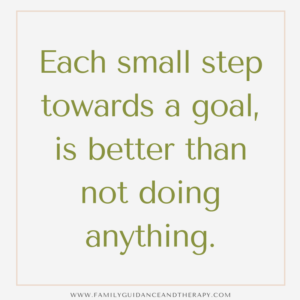As adults, we have a lot of decisions that we have to make daily, weekly, monthly, and yearly.
How do we know that we are making the right decision? Once we do, are we committing to it? Take for example, the motivation to come to therapy. Most of the time, the motivation comes from a recent incident, situation, a trigger from the past, or external factors that motivate it; such as, Employee Assisted Programs encouraged by your managers. However, despite the situation, the decision to make the first call and appointment, may or may not be easy, but actually following through with the appointment is more difficult. Filling out the paperwork, and writing down why you are seeking help can be uncomfortable; and finally, meeting your therapist, sitting on the couch or chair, and sharing about why you are seeking therapy. Next, if you like your therapist, or not, deciding whether or not you want to see this person weekly or bi-weekly, for X amount of weeks, months, years, and divulge your thoughts and emotions to this person. These are a lot of decisions.There are many factors that help individuals make decisions.
According to research completed by Dietrich (2010), there are many factors that help individuals make decisions. The factors that were mentioned were, past experiences, cognitive biases, age, and individual differences, belief in oneself, and committing to the decision. These are very valid reasons that allow individuals to make decisions, or not. As individuals, we base our decision making on satisfaction and feeling successful or happy with the outcome of our decisions. The same research found that if individuals made their own decisions, they would be happier with the results, than if others helped them or influenced them in making their decisions. However, thinking about seeking therapeutic help, you are seeking suggestions from a professional to help you make certain decisions, by brainstorming and talking out loud, processing information, and gaining a new perspective on the situation, to help you make a decision. In the end you are the one making the final decision, and that in itself permits the satisfaction and happiness.
How do we know that we are making the right decision? Once we do, are we committing to it?
The other side of the coin is regret.
Abraham and Sheeran (2003) shared that regret is the belief that decision will be the result in something individuals do not accomplish. Feelings of disappointment and dissatisfaction is the meaning of regret, when discussing potential outcome of a decision. However, if you regret your decision, then the result may be more negative, sending out that type of energy towards it, will result in a negative outcome. However, if you are working towards something, and send out positive energy, the result will be more satisfying.
Don't regret decisions.
In the end, you are the one that will experience the result and outcome of a decision that you make. So if you are seeking help from a professional, just know that as therapists, we are not judges, we are not able to provide you with advice. We offer suggestions, perspectives, and experience of others to help you identify what works for you. Just know that each small step towards a goal, is better than not doing anything. Don’t regret decisions, they are not forever, they are temporary ways to help you commit to change, feel better, and work towards accomplishing your goals.

